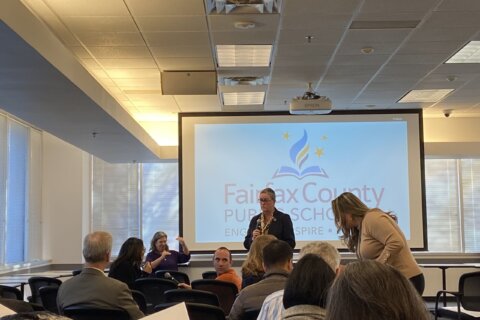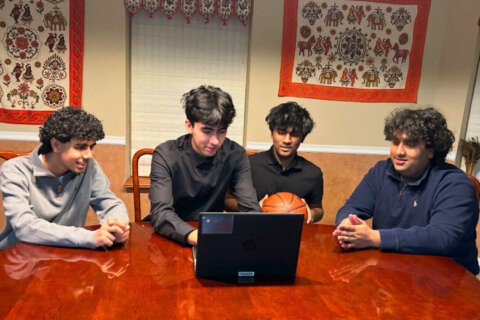Virginia’s elementary and middle schoolers are making little-to-no progress in reading and math, suggesting many are still recovering in the aftermath of the pandemic, according to the state’s results on the National Assessment of Educational Progress.
The average reading score among fourth graders remained the same as in 2022, and fourth-grade math scores increased by two points. However, eighth-grade average scores are much more troubling — the average math score fell four points compared to 2022, as did the average reading score.
State Superintendent Lisa Coons called the data unsurprising, given the most recent batch of standardized test data presented last August. Virginia students take standards of learning exams every year, but fourth and eighth graders take NAEP every two years.
“We have a long way to go, and we have a lot of work to do,” Gov. Glenn Youngkin said. “That’s why I’m also encouraged by the collaborative work going on between our school divisions and the state.”
In D.C., fourth graders made major strides in math, but fourth-grade reading and eighth-grade math and reading scores remained about the same. In Maryland, fourth graders reported average score increases in math and reading, but the eighth-grade scores were about the same as they were in 2022.
In Virginia, though, some students historically facing the largest achievement gaps are seeing their scores improve faster. Fourth grade students with disabilities increased their math scores by four points, and economically disadvantaged students scored nine points higher in 2024.
However, eighth grade students with disabilities reported a 10-point dip, which Coons said means “that gap is widening in our upper grades, and we definitely need to focus and provide continued intensive supports for our students with disabilities as they move into high school.”
State leaders are expecting high-intensity tutoring to help students continue to catch up. Virginia school divisions have hired more tutors and are relying on evidence-based tutoring during the school day. They’ve also offered summer programming, and have cracked down on absenteeism to make sure students are in class and learning.
“We launched statewide platforms of tutoring, worked diligently on chronic absenteeism, and many of our school divisions have gone bell-to-bell on cellphone free or remove cellphones completely from their classrooms,” Coons said. “That is a lot of effort that happened after this data.”
Youngkin said it’s clear there’s “a generation of students that we know need intensive support.”
Get breaking news and daily headlines delivered to your email inbox by signing up here.
© 2025 WTOP. All Rights Reserved. This website is not intended for users located within the European Economic Area.








